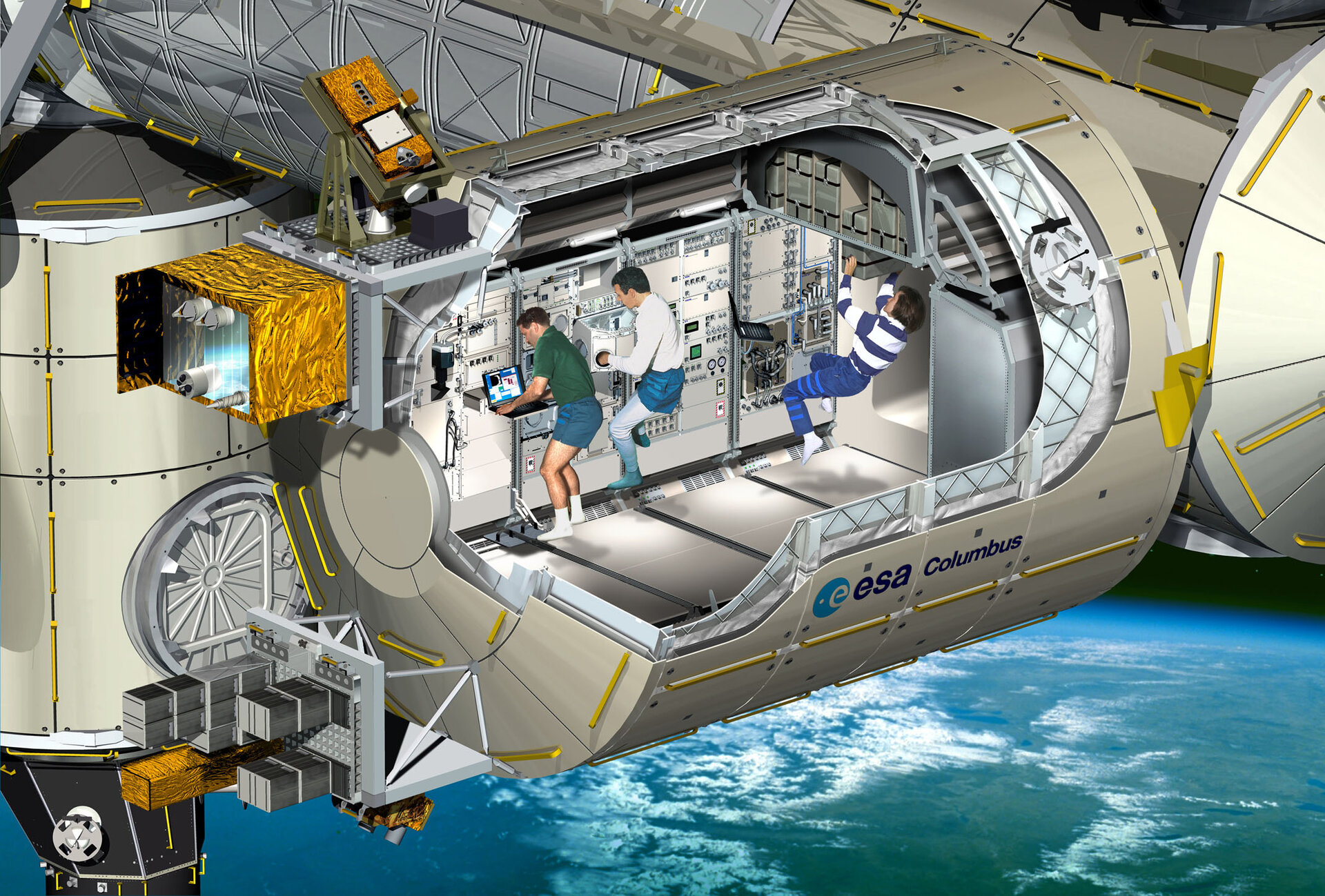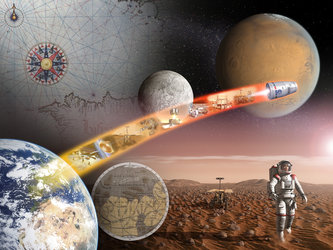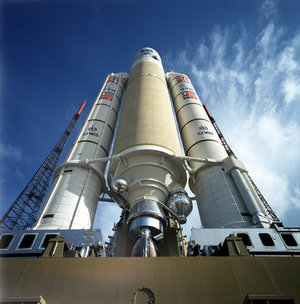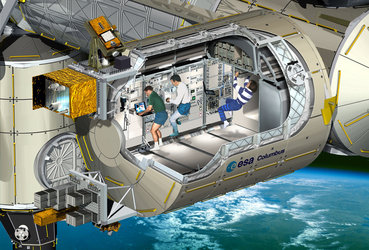Space for life
The International Space Station – the world’s largest-ever technical cooperation in peacetime – is a powerful science laboratory, a testbed for future technologies and a unique facility for conducting advanced human physiology, medical, biological and materials research in space.
Research conducted on board the ISS will help greatly in preparing for future exploration missions to more distant parts of the Solar System.
Europe has a substantial share in the International Space Station (ISS). ESA’s main hardware contributions are Columbus, a multipurpose science and technology laboratory, and the Automated Transfer Vehicle (ATV), a service vehicle essential for the ISS.
In addition, ESA is also providing two of the three nodes of the ISS, the Cupola, the European Robotic Arm (ERA), the Data-Management System for the Russian Service Module, and various facilities for scientific research.
To enhance European expertise, ESA is cooperating with many organisations, including the European Science Foundation and the European Commission, in its human spaceflight endeavours.















 Germany
Germany
 Austria
Austria
 Belgium
Belgium
 Denmark
Denmark
 Spain
Spain
 Estonia
Estonia
 Finland
Finland
 France
France
 Greece
Greece
 Hungary
Hungary
 Ireland
Ireland
 Italy
Italy
 Luxembourg
Luxembourg
 Norway
Norway
 The Netherlands
The Netherlands
 Poland
Poland
 Portugal
Portugal
 Czechia
Czechia
 Romania
Romania
 United Kingdom
United Kingdom
 Slovenia
Slovenia
 Sweden
Sweden
 Switzerland
Switzerland


































